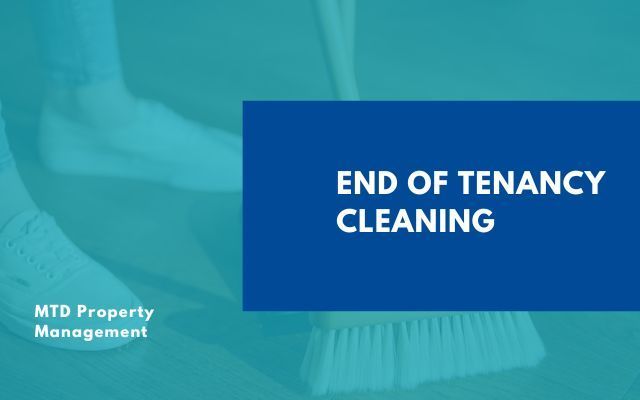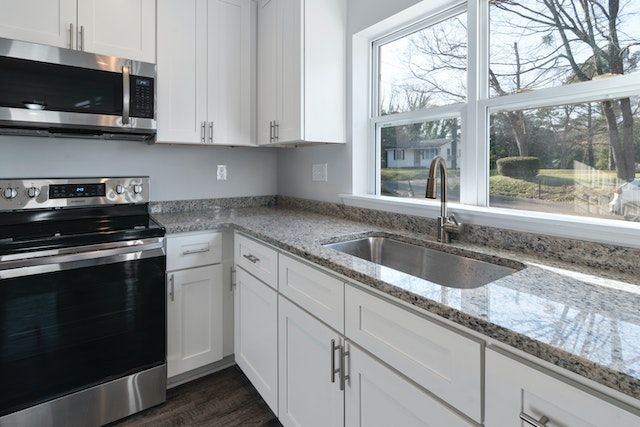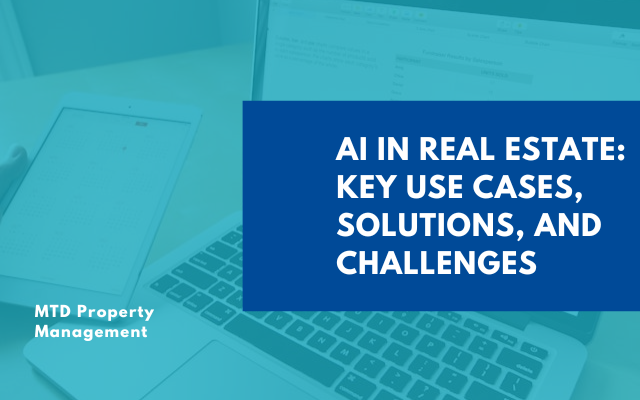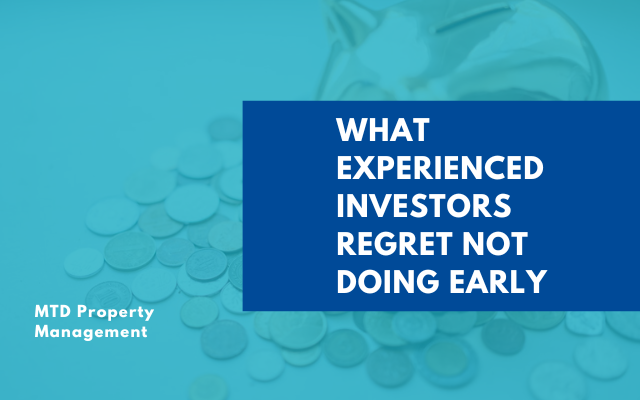End of Tenancy Cleaning

One of the biggest challenges landlords face is keeping their property well-maintained throughout each tenancy. That’s why many landlords require tenants to deep clean the property before they move out.
While end of tenancy cleanings are standard practice, they’re not always a simple process. In fact, property cleanliness, or lack of it, is one of the main causes of security deposit disputes between landlords and tenants.
Luckily, you can easily avoid disputes by letting tenants know your expectations beforehand. In this article, the experts at MTD Property Management will go over the basics of end of tenancy cleanings, as well as the best tips to ensure your renters comply with your cleanliness requirements.
Why Are End of Tenancy Cleanings Important?
At the end of a tenancy, the tenant has a responsibility to leave the property as clean as it was when they moved in. This means cleaning every aspect of the property, including floors, walls, carpets, and appliances. If any modifications have been made to the property, such as paint jobs or damage, they should be returned to how they were before.
End of tenancy cleanings are a simple way to ensure your renters keep your property in good condition throughout their tenancy. They also protect your rental from damage because, if the rental is not returned in its original condition, tenants risk losing part or all of their security deposit.

How to Set the Standards for an End of Tenancy Clean
Everyone has a different standard of cleanliness. If you want to avoid misunderstandings, it’s best to let tenants know exactly what you expect from an end of tenancy cleaning.
Let renters know that you expect them to leave the property at the same level of
cleanliness it was when they first moved in. To help them achieve this, consider sending them any pictures or notes you took while inspecting their property before the tenancy.
Having this documentation will also come in handy in case any disputes over the end of tenancy cleaning arise.
Consider Normal Wear and Tear
When setting the standards for an end of tenancy cleaning, you must take
normal tear and wear into consideration. This refers to damage caused to a property by living in it or by things like direct sunlight or rain. Examples of normal tear and wear include faded paint, scuffed wooden floors, and dirt build-up on hard-to-clean areas.
These signs of wear and tear are inevitable in residential properties. However, if you notice damages that go beyond normal wear and tear, you may be able to make deductions or hold the entirety of a tenant’s deposit.

What Does an End of Tenancy Clean Entail?
An end of tenancy clean covers all aspects of the property, including all furniture and appliances provided. Below is a list of all the things you should ask your tenants to pay attention to when deep cleaning your rental before they move out.
Walls, Doors, and Ceilings
- Look for any marks on the walls, clean them off or cover them with paint.
- Wipe electrical sockets and light switches.
- Remove cobwebs from walls, ceilings, and skirting boards.
- Clean door surfaces and handles.
- Clean windows, furnishings, fixtures, fittings, and mirrors.
- Clean the tops of shelves, wardrobes, cupboards, mirrors, and curtain rails.
- Dust lampshades, light fittings, and bulbs.
- Clean the surfaces of desks, tables, and sideboards.
- Clear out and vacuum chairs and sofas.
- Clear out and clean the inside of drawers and cupboards.
- Vacuum and steam clean carpets and rugs.
Bathrooms
- Remove limescale from sinks, showers, and bathtubs
- Clean and polish taps and other water fittings
- Scrub and disinfect the toilet.
- Clean the tiles and remove mold if necessary.
- Clean shower doors and trays.
- Clean shower rails and radiators.
- Wipe extractor fans.
Kitchen
- Clean the hob and remove all components to clean them individually.
- Degrease the stove and oven.
- Wipe countertops and worktops.
- Clean the sink and remove any limescale.
- Empty and clean the fridge.
- Empty and disinfect bins.
- Empty all drawers and cupboards.
- Clean wall tiles and floor, removing mold if necessary.
- Clean all appliances inside and out, such as microwaves, toasters, and dishwashers.
- Wash and organize all provided cutlery, plates, and glassware.
Outside Areas
- Sweep and tidy as needed.
- Mow the lawn and weed any flower beds.
- Consider refreshing the curb appeal.
Can Tenants Clean Your Property Themselves?
If they have the time and necessary equipment, tenants can handle end of tenancy cleaning by themselves. However, the end of a tenancy can be a stressful time, so they might not have the time to deep clean the rental before their move-out date. That’s why many renters opt to hire a professional cleaner instead.
A professional end of tenancy cleaner will ensure the rental is cleaned on time. This will not only save your renters time but will also help you keep your property in good shape!
Bottom Line
When a tenancy is about to come to an end, it’s the renter’s job to ensure the property is as clean as it was when they first moved in. To ensure there are no disputes regarding the rental’s cleanliness, it’s best to let renters know beforehand what you expect from them.
If you have more questions about the end of tenancy cleaning process, contact
MTD Property Management! With over 20 years of experience, our team can help ensure that your tenants honor their end of the lease without damaging the
relationship you’ve built with them!










